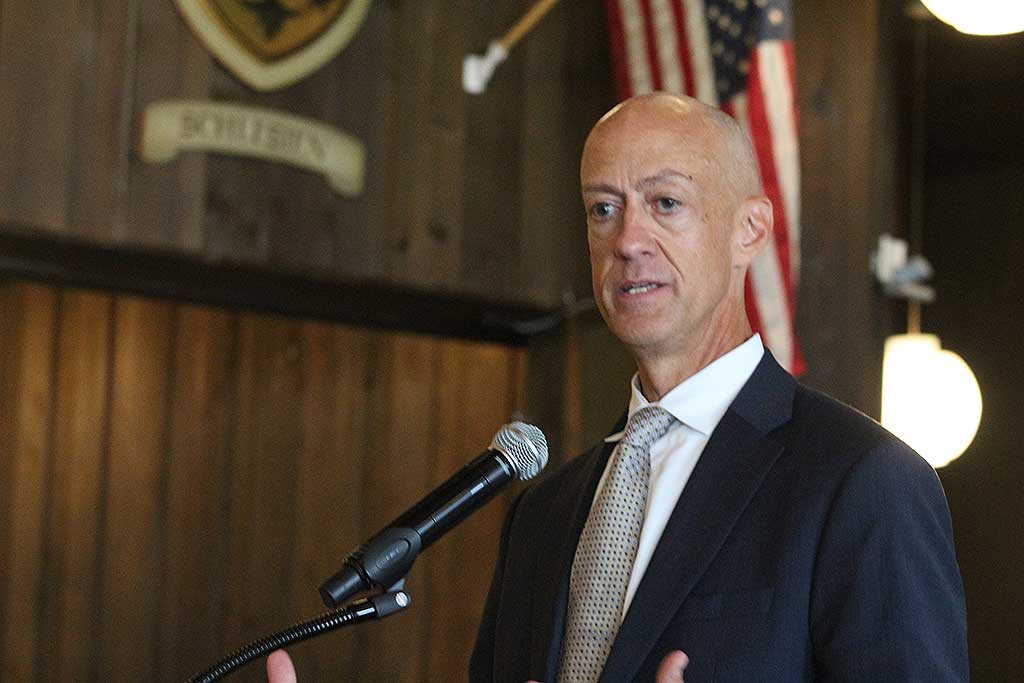Property taxes are out of control in Nebraska. In Omaha, landmark restaurants like Johnny’s Café and Cascios are seeing their property valuations increase more than triple, resulting in thousands of dollars more coming out of their pockets every month.
At the same time, Omaha Public Schools, which already spends over $20,000 per student every year, is actually proposing to raise the tax levy by 2% in their budget for next year, only increasing the pain of homeowners at a time where many of them can barely make ends meet.
Jim Vokal, CEO of the Platte Institute, spoke at the Pachyderm Luncheon in Omaha on Monday, addressing the issue of skyrocketing property taxes and potential solutions.
One question often asked when discussing property tax cuts is, “how are we going to pay for them?” In 1967, Nebraska legislators answered that question by introducing income and sales taxes to offset cuts to property taxes. Today, however, Nebraska still ranks eighth in the nation for property tax rates.
Vokal argued that property taxes are fundamentally a spending problem, driven by local governments that fail to offset rising valuations with levy rate reductions—resulting in higher tax collections. Vokal highlighted the Texas plan, which mandates revenue-neutral rates: as property valuations rise, local subdivisions must lower tax levies to keep taxpayers’ bills flat, without needing additional state funds.
I asked Vokal about current ballot initiatives, such as the EPIC Option to replace property taxes with a consumption-based system, and what reforms he would propose to taxpayers. He suggested two: one to limit assessor valuations and another to broaden the sales tax base by eliminating exemptions. For example, in Nebraska, you pay sales tax on a lawn mower but not on services like lawn mowing. These sales tax exemptions total $6 billion in lost revenue, which is greater than the entire state budget.
“Broadening the base” in this way would shift Nebraska toward a consumption-based tax system, generating funds to offset property tax cuts without changing existing rates. Vokal argued this method would make the state more competitive with neighbors like South Dakota and Iowa. In 2022, State Senator Mike McDonnell proposed LB1264, a bill to implement sales tax reforms like these. Vokal supported the proposal at the time, but the bill failed to make it out of the Revenue Committee.
As of now, Vokal did not believe any significant reform would come from the Unicameral in the next legislative session, as lawmakers are unlikely to pursue sweeping tax changes in an election year. In that case, a ballot initiative from the “second house”—the people—may be the only hope for meaningful property tax relief in Nebraska in the near future.




